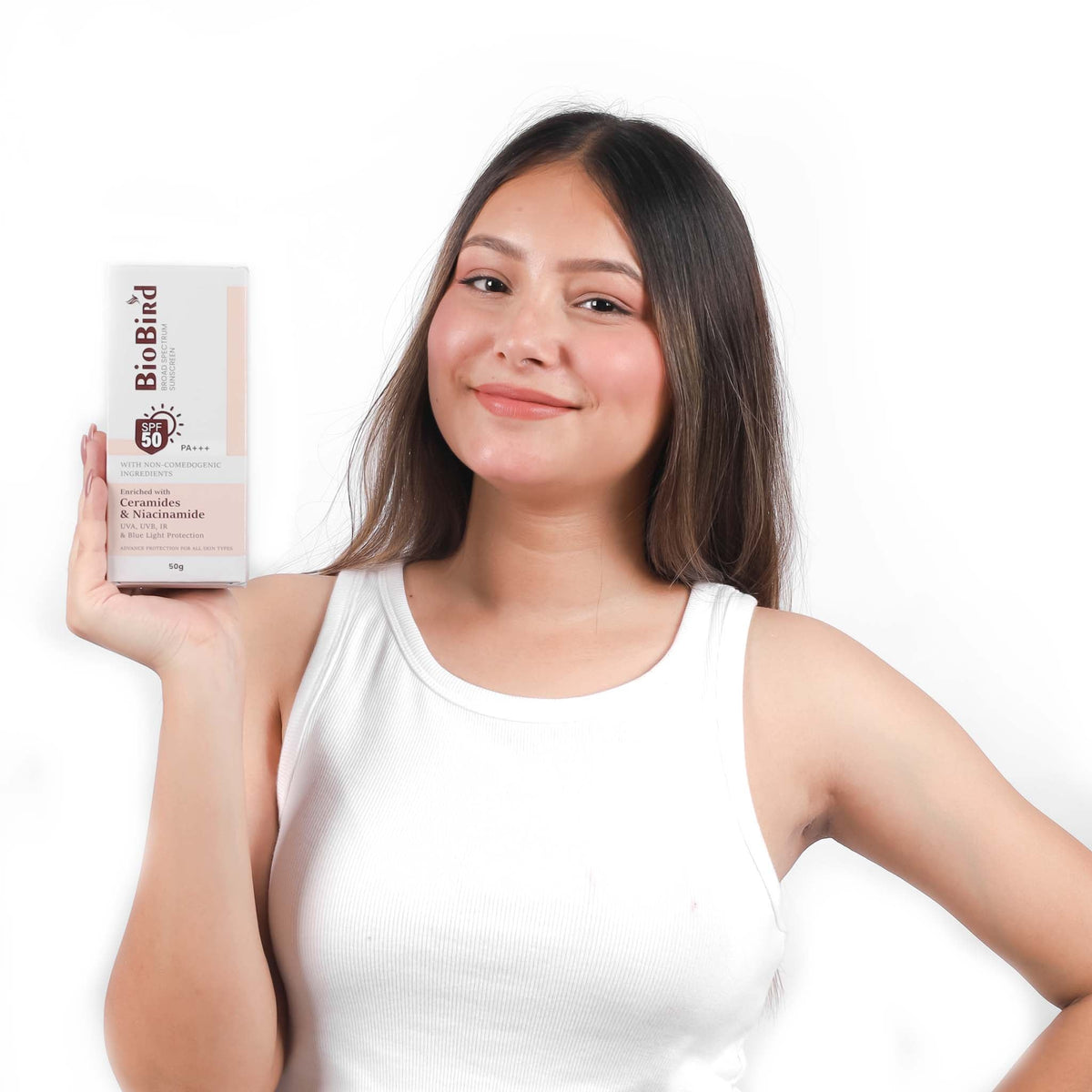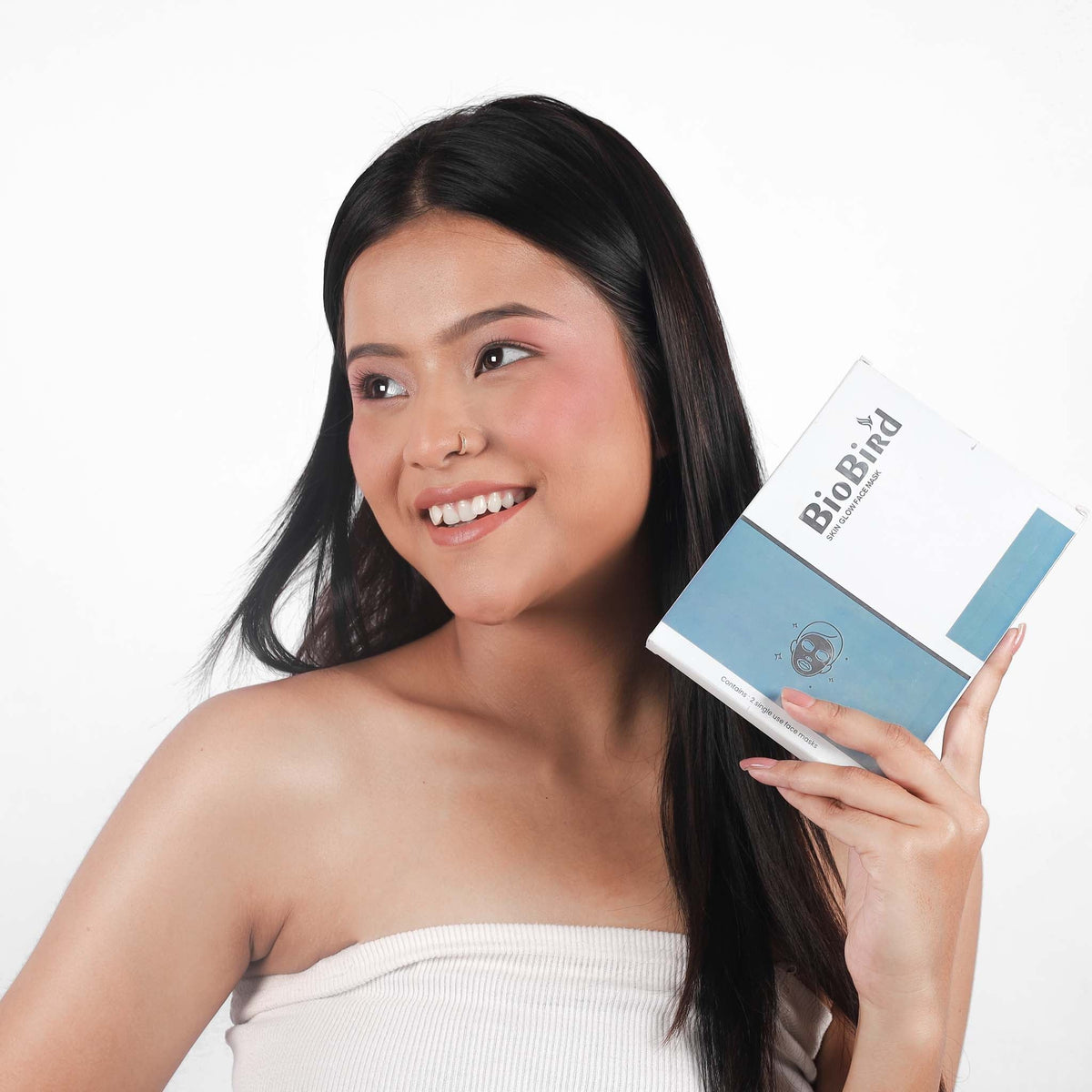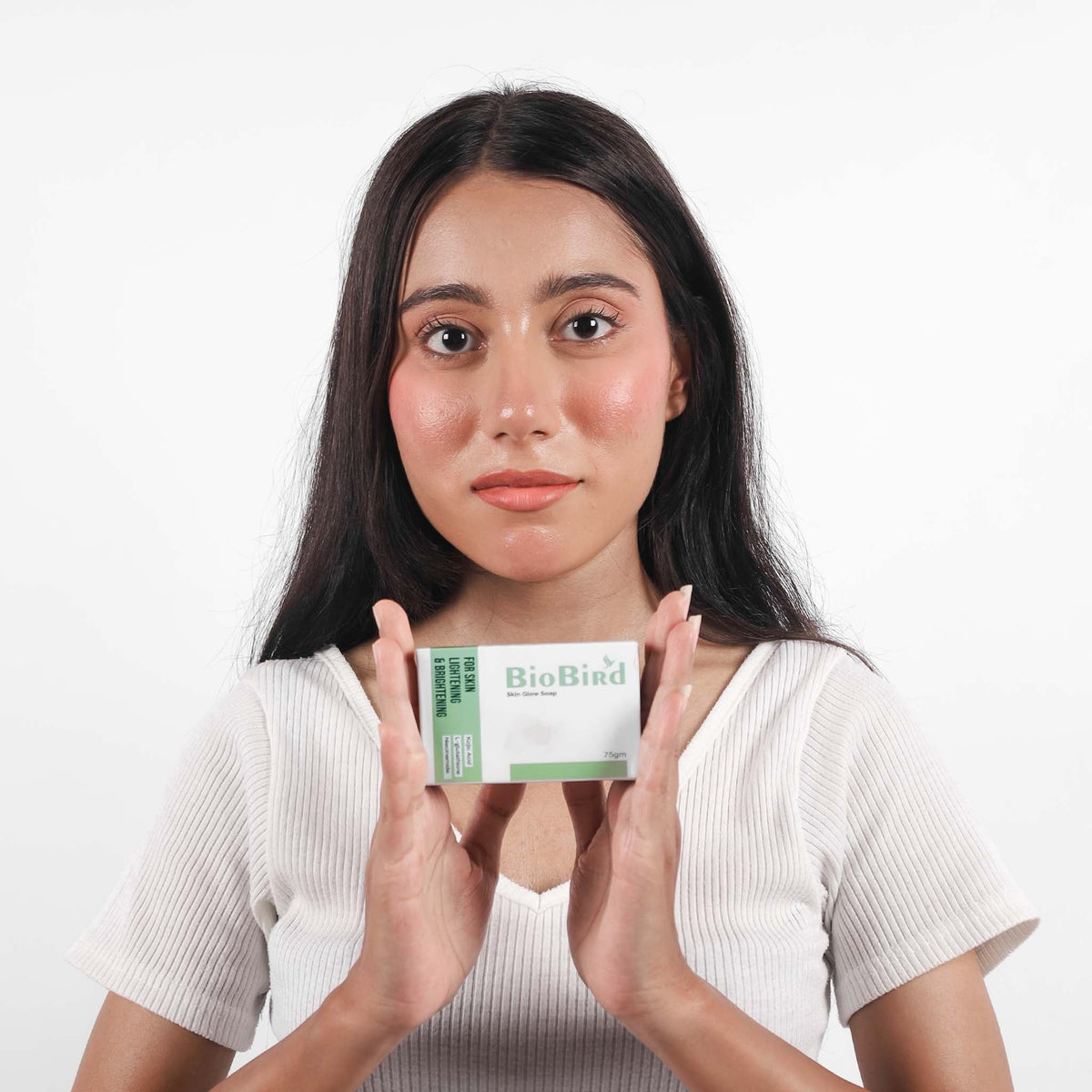Maintaining healthy, beautiful hair is a top priority for many, as it plays a significant role in your identity and self-expression. While traditional hair care products like shampoos and conditioners are commonly used, they often come with limited benefits and sometimes even unwanted side effects. This has led many to turn to natural alternatives, with essential oils becoming a popular choice.
For centuries, essential oils have been cherished for their potential to promote hair growth, reduce hair loss, and enhance shine and volume. Derived from plants, these oils contain various growth factors and compounds that contribute to numerous biological benefits, thus offering promising role for maintaining hair health.
But are essential oils truly the secret to boosting hair growth, preventing hair loss, and improving overall hair and scalp conditions? Let’s dive into the science behind these claims and see what the research says!
Article Highlights:
- What are Essential Oils and How Do They Benefit Hair Growth?
- Benefits of Essential Oils for Hair Growth-What Research Say?
- Top 10 Essential Oils for Promoting Hair Growth and Thickness
- How to Maximize the Benefits of Essential Oils?
- How to Apply Essential Oils?
- Conclusion
- Frequently Asked Questions (FAQs)
What are Essential Oils and How Do They Benefit Hair Growth?
Essential oils are potent, natural plant extracts, known for their diverse biological and pharmacological properties such as anti-inflammatory, antimicrobial, and antioxidant effects. One of the most popular use of essential oils is promoting healthy hair. It is believed that these oils can help stimulate hair growth, reduce hair loss, and improve hair quality by supporting hair follicle health and preventing scalp inflammation.
Beyond their hair benefits, essential oils also have emotional and psychological impacts. They can influence mood, reduce stress, and boost self-esteem, which may indirectly enhance the quality and appearance of hair. However, the effectiveness of essential oils can vary depending on several factors, such as the type of oil, its concentration, the method of application, and individual hair conditions.
Benefits of Essential Oils for Hair Growth-What Research Say?
Scientific studies have provided increasing evidence supporting the potential of essential oils in promoting hair growth and improving scalp health. While much of the research is based on animal models or small human trials, several studies have indicated that essential oils can improve hair growth by affecting hair follicles and modulating scalp conditions.

Based on research findings, here's how essential oils may help with hair growth:
- Influence Hair Follicle Growth Cycle: Essential oils can stimulate hair follicle stem cells, supporting hair growth by improving follicle health.
- Reduce Scalp Inflammation: Essential oils can decrease inflammation caused by scalp infections or allergies, promoting a healthier environment for hair growth.
- Improve Blood Circulation: Essential oils like rosemary and peppermint boost circulation to the scalp, delivering essential nutrients to hair follicles.
- Support Hair Follicle Function: Essential oils can enhance metabolism in hair follicle cells, ensuring they receive the oxygen and nutrients needed for optimal growth.
- Prevent Scalp Disorders: With their antimicrobial and anti-inflammatory effects, essential oils can help reduce scalp conditions like dandruff that could hinder hair growth.
While the research is promising, further large-scale studies are needed to fully understand the potential of essential oils for hair growth and compare them with traditional treatments.
Top 10 Essential Oils for Promoting Hair Growth and Thickness

- Coconut Oil: It offers several benefits for hair and scalp health. It forms a protective coating over the hair, sealing in moisture and improving the hair's overall texture by detangling and smoothing the cuticle surface. Additionally, it prevents protein loss from the hair shaft by penetrating deeply due to its low molecular weight.
- Almond Oil: It is known for its high vitamin E content and provides significant benefits for hair growth. It helps protect the hair from UV damage and acts as an emollient, softening and moisturizing dry hair. It also improves hair elasticity by filling the gaps between hair cuticles, making the hair stronger and more flexible.
- Rosemary Oil: This oil is widely used to moisturize and nourish the scalp. It can also promote hair growth and prevent hair thinning by stimulating blood circulation to scalp. It has also been known to prevent graying of hair.
- Argan Oil: Extracted from the Argan tree, this oil is known for its moisturizing properties, making it effective for dry hair. It improves hair elasticity and helps regulate sebum production, making it suitable for both dry and oily hair types. It is rich in fatty acids and antioxidants, which help keep hair thick, soft, and shiny.
- Olive Oil: Olive oil is a well-known emollient that seals moisture in the hair, though coconut oil is superior in this regard. It protects the hair from UV damage due to its antioxidant-rich content, particularly hydroxytyrosol. It also has antifungal properties that help combat scalp infections and is beneficial in treating conditions like psoriasis when used in combination with other ingredients.
- Amla Oil: Derived from the Indian gooseberry, it is packed with vitamin C and antioxidants. It helps fight scalp infections, reduces hair graying by neutralizing harmful free radicals, and has antimicrobial properties. It is particularly useful in promoting healthy, strong hair by protecting against environmental damage.
- Fenugreek Oil: This ****oil is known for its ability to promote hair growth, especially in cases of androgenetic alopecia. Its active ingredient, diosgenin, mimics estrogen, potentially inhibiting the effects of testosterone on hair follicles. It has antifungal and antibacterial properties, making it a useful option for a healthier scalp.
- Peppermint Oil: It is known for its stimulating properties that can improve blood circulation to the scalp. Increased blood flow helps to deliver more oxygen and nutrients to hair follicles, promoting healthier and faster hair growth. The cooling effect of this oil also helps to relieve scalp irritation and itching.
- Lavender Oil: It ****is celebrated for its calming and soothing properties, but it also plays a role in hair growth. It has been shown to promote the growth of hair follicles and reduce hair thinning by increasing blood circulation in the scalp. It is also known for its ability to reduce stress, which can be a major contributor to hair loss. By improving both scalp health and reducing stress, lavender oil creates optimal conditions for hair growth.
- Tea Tree Oil: This oil is a powerful essential oil with antimicrobial and antifungal properties that can improve scalp health. It helps to unclog hair follicles, promoting a healthy scalp environment necessary for hair growth. It can also balance oil production on the scalp, preventing conditions like dandruff or dry scalp that might interfere with hair growth. Regular use of tea tree oil can lead to stronger, healthier hair by addressing underlying scalp issues.
How to Maximize the Benefits of Essential Oils?
Essential oils can be more effective when combined with other natural ingredients like sea salt, baking soda, or carrier oils like jojoba oil.

These ingredients add benefits such as cleansing and conditioning, but they can also cause dryness or damage if not used properly.
- Sea Salt: Exfoliates and detoxifies the scalp, but can cause dryness if overused. Pair with oils like lavender, rosemary, and peppermint to soothe and refresh the scalp.
- Baking Soda: Balances pH and removes product buildup, but may strip natural oils. Use with oils like tea tree, lemon, and chamomile to treat dandruff and add shine.
- Jojoba Oil: Moisturizes the scalp and works as a carrier oil for other essential oils. Use sparingly and apply to the ends of your hair to prevent dryness.
Do not forget to use these essential oils in moderation and test on a small patch before applying to your entire scalp.
How to Apply Essential Oils?
To get the most out of essential oils for hair growth, it’s important to apply them properly. Follow these steps:

- Dilute: Mix 2-3 drops of essential oil with 1 tablespoon of carrier oil (like jojoba or coconut).
- Patch Test: Test on a small area of skin to ensure you don’t have an allergic reaction.
-
Apply:
- Scalp Massage: Massage the diluted oil into your scalp for 5-10 minutes and leave it for 30 minutes before washing it out.
- Hair Ends: Apply to the tips to prevent dryness and split ends.
- Conditioner Boost: Add a few drops of essential oil to your conditioner for extra shine and softness.
- Steam Treatment (Optional): Wrap your hair in a warm towel to help the oils penetrate deeper.
- Frequency: Apply 2-3 times a week for best results, but avoid overuse.
Conclusion
Essential oils offer a natural and effective way to promote hair growth and improve scalp health. While more research is needed to fully validate their benefits, many essential oils have shown promising results in improving blood circulation, reducing inflammation, and supporting hair follicles. When used correctly and in combination with other natural ingredients, essential oils can help you achieve healthier, more vibrant hair.
Frequently Asked Questions (FAQs)
- Which essential oils are best for hair growth? Peppermint, rosemary, lavender, and cedarwood oils are known for promoting hair growth. These oils improve blood circulation, stimulate hair follicles, and help reduce hair thinning.
- Are essential oils safe for all hair types? Yes, essential oils can generally be used for all hair types. However, it's important to dilute them properly to avoid irritation and to patch test for allergies before full application.
- Can essential oils help with dandruff? Yes, oils like tea tree, lavender, and eucalyptus have anti-fungal and antibacterial properties that help reduce dandruff by improving scalp health and controlling oil production.
- Can I mix essential oils with my regular shampoo? Yes, you can add a few drops of essential oils to your shampoo for added benefits, such as boosting hair growth or soothing the scalp. Ensure that the essential oils are diluted properly.
- Can essential oils make your hair thicker? Certain essential oils, like rosemary and peppermint, can stimulate the scalp and improve follicle health, potentially making hair appear thicker over time. However, results may vary by individual.






0 comments